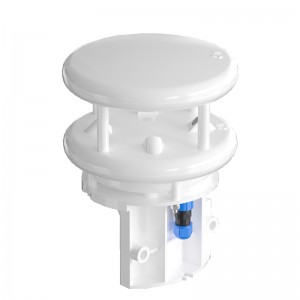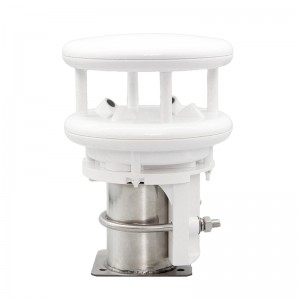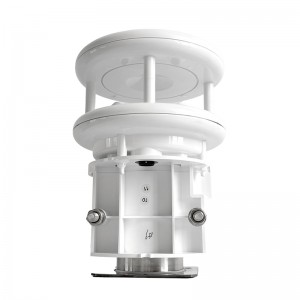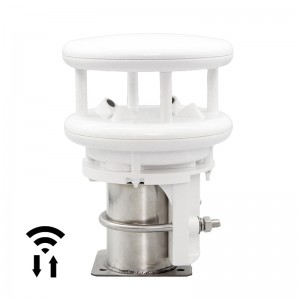With the acceleration of the global urbanization process, how to achieve refined urban management has become the focus of attention for governments of various countries. Recently, Beijing announced that it will deploy intelligent weather stations on a large scale throughout the city. This move marks an important step forward for Beijing in building a smart city and improving the city’s management level.
Intelligent Weather Station: The “Weather Brain” of Smart Cities
The intelligent weather station is an important component of the current smart city construction. These weather stations are equipped with advanced sensors and can monitor a variety of meteorological parameters in the urban environment in real time, including temperature, humidity, wind speed, wind direction, air pressure, precipitation, ultraviolet index and air quality indicators (such as PM2.5, PM10, sulfur dioxide, nitrogen oxides, etc.). These data are transmitted in real time to the urban management platform through Internet of Things technology. After analysis and processing, they provide accurate meteorological and environmental information for urban managers.
The “Smart Eye” for Urban Refined Management
The application of intelligent weather stations provides strong data support for the refined management of cities:
Disaster Early Warning and Emergency Response:
By monitoring meteorological data in real time, intelligent weather stations can issue early warnings of extreme weather events such as heavy rain, heavy snow, typhoons, and heat waves. Urban managers can promptly activate emergency response plans based on early warning information, organize personnel evacuation, material allocation and rescue and disaster relief efforts, and effectively reduce disaster losses.
2. Air Quality Management and Pollution Control:
Intelligent weather stations can monitor air quality indicators in real time, providing data support for urban air quality management and pollution control. For example, when the concentration of PM2.5 exceeds the standard, the system will automatically issue an alarm and provide pollution source analysis and treatment suggestions to assist the environmental protection department in taking effective measures to improve air quality.
3. Urban Transportation and Public Safety:
Meteorological data have an important influence on urban traffic management. The meteorological information provided by intelligent weather stations can assist traffic management departments in predicting changes in traffic flow, optimizing traffic signal control, and reducing traffic accidents. In addition, meteorological data can also be used for public safety management. For instance, in high-temperature weather, high-temperature warnings can be issued in a timely manner to remind citizens to take measures to prevent heatstroke and keep cool.
4. Urban Planning and Construction:
Long-term accumulation and analysis of meteorological data can provide a scientific basis for urban planning and construction. For instance, by analyzing the urban heat island effect, the planning department can rationally arrange green Spaces and water bodies to improve the urban microclimate. In addition, meteorological data can also be used to assess the energy consumption and comfort of buildings, guiding the design and construction of green buildings.
Application cases and economic benefits
Intelligent weather stations have been deployed in multiple urban districts in Beijing, China, and remarkable application effects have been achieved. For instance, during a heavy rain warning, the intelligent weather station issued the warning information 12 hours in advance. Urban managers promptly organized drainage and traffic guidance work, effectively preventing urban flooding and traffic paralysis. In addition, in terms of air quality improvement, the data support provided by intelligent weather stations has helped environmental protection departments accurately locate pollution sources and take effective measures, resulting in a significant improvement in air quality.
According to preliminary estimates, the application of intelligent weather stations can save Beijing hundreds of millions of yuan in urban management costs each year, including reducing disaster losses, lowering traffic congestion costs, and improving air quality. Meanwhile, intelligent weather stations also provide urban residents with a safer and more comfortable living environment.
Environmental protection and sustainable development
The application of intelligent weather stations not only helps improve the level of urban management, but also has positive significance for environmental protection and sustainable development. Through precise meteorological and environmental monitoring, urban managers can take more effective measures to reduce pollution emissions and improve the urban ecological environment. In addition, intelligent weather stations can also be used to monitor the environmental quality of urban green Spaces and water bodies, guide urban greening and water resource management, and promote the sustainable development of cities.
Future Outlook
With the wide application of intelligent weather stations, the construction of smart cities will enter a brand-new stage. Beijing plans to further expand the deployment scope of intelligent weather stations in the coming years and deeply integrate them with other smart city management systems (such as intelligent transportation, intelligent security, and intelligent environmental protection, etc.) to build a complete smart city ecosystem.
The response of the citizens
Many citizens expressed their welcome for the application of the intelligent weather station. A citizen living in Chaoyang District said in an interview, “Now we can check the weather and air quality information in real time through the mobile phone App, which is very helpful for our daily travel and life.”
Another citizen said, “The application of the intelligent weather station has made our city safer and more comfortable.” It is hoped that there will be more such smart city projects in the future.
Conclusion
The deployment of intelligent weather stations marks an important step forward for Beijing in the construction of a smart city. With the continuous advancement of technology and the deepening of applications, smart cities will become more efficient, intelligent and sustainable. This will not only help improve the level of urban management, but also provide citizens with a safer and more comfortable living environment, and offer valuable experience and reference for the global urbanization process.
Post time: Apr-30-2025





